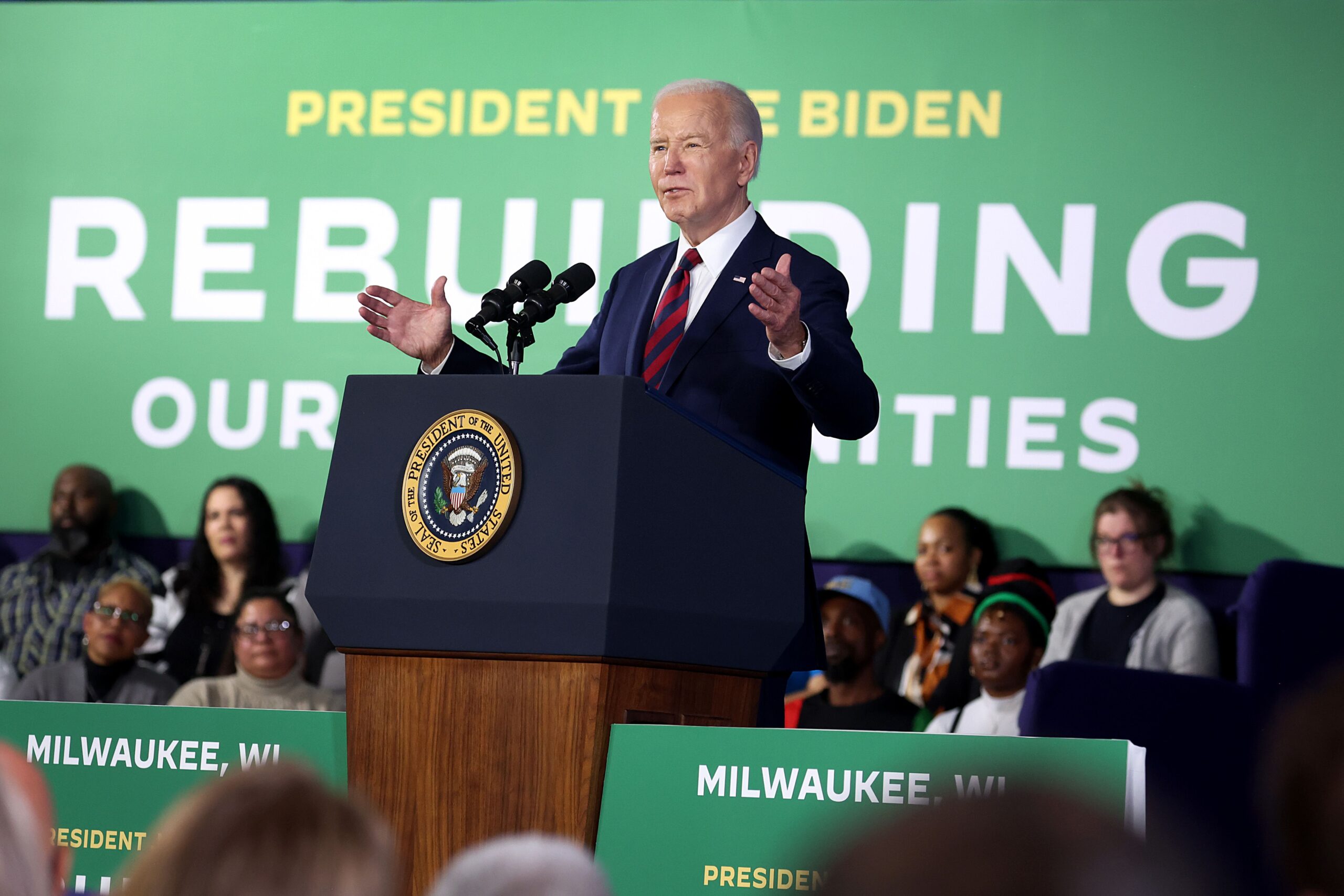On a recent brisk Sunday, Kimberlee Foster, a retired Milwaukee police sergeant, engaged in a lengthy conversation with a driver in a strip mall parking lot. Foster’s efforts could play a pivotal role in the 2024 election, at least that’s what President Joe Biden’s campaign hopes.
Foster is part of a “relational organizing” pilot program initiated by Biden’s campaign in Wisconsin. The program aims to address the decline in Black voter turnout over the past decade and the challenges posed by cultural and technological changes.
“When you knock on the door, some people want to take the leaflet and close the door so they can get back to watching football,” Foster said. “When you come at them this way, they’re more likely to say, ‘I hadn’t thought about voting, but now I see why it’s important to you.’ You’re praying that feedback leads them to a polling place.”
The program’s launch in Wisconsin is strategic. Both Biden and former President Donald Trump’s paths to victory could run through this state, which Biden won by fewer than 21,000 votes in 2020 and Trump won by fewer than 23,000 votes in 2016. The Black vote was significantly lower than expected in both elections.
However, the fight is not limited to Wisconsin. Biden’s campaign is also focusing on cities like Detroit, Philadelphia, Charlotte, and Atlanta, where his chances of winning may hinge on reversing the trend among Black voters, particularly Black men.
Despite Trump’s claims of appealing to Black voters, leading Black Democrats acknowledge that he seems well-positioned to capitalize on voter disaffection. Recent polls have shown the presumptive GOP nominee increasing his share of the Black vote.
The Biden campaign is implementing a strategy that combines traditional methods with adaptations to the unique challenges of 2024. This includes pushing back against racially targeted voter suppression laws and investing in targeted advertising.
Vice President Kamala Harris is set to launch a new tour in the spring, focusing on economic opportunities for Black men. Biden himself has put Black voters front and center, visiting the historic Mother Emanuel AME Church in Charleston, South Carolina, as part of his 2024 kick-off.
Efforts are also underway to engage Black celebrities and influencers to support the reelection effort. The Biden campaign is experimenting with online ads urging Black voters to sign up for programs made available by the administration, hoping that being connected with benefits would pull them in as voters.
However, community leaders express concern about the erosion of Black voter turnout. Many Black voters who turned out for Barack Obama in 2008 and 2012 did not feel much change in their own lives. Some drifted to Trump, while others stopped showing up at all.
Leaders of several Black grassroots organizations say they haven’t seen much difference from the president and his aides so far. They emphasize the need for continued conversation and engagement with Black voters, particularly those who feel disengaged from the political process.
As the 2024 election approaches, the Biden campaign is aware of the need to reenergize its base and is taking steps to reach out to Black male voters. The focus is on what the administration has done for them and less on what’s at stake if Biden loses.
Rep. Lauren Underwood, an Illinois congresswoman, stressed the need to focus on how “a Black man, head of his household, wants to be treated with respect as he navigates around the world.” She added, “We have real pockets of Black wealth — and those individuals who are building a secure foundation for themselves and their families may not typically hear a conversation directed to them. There’s opportunity there.”

